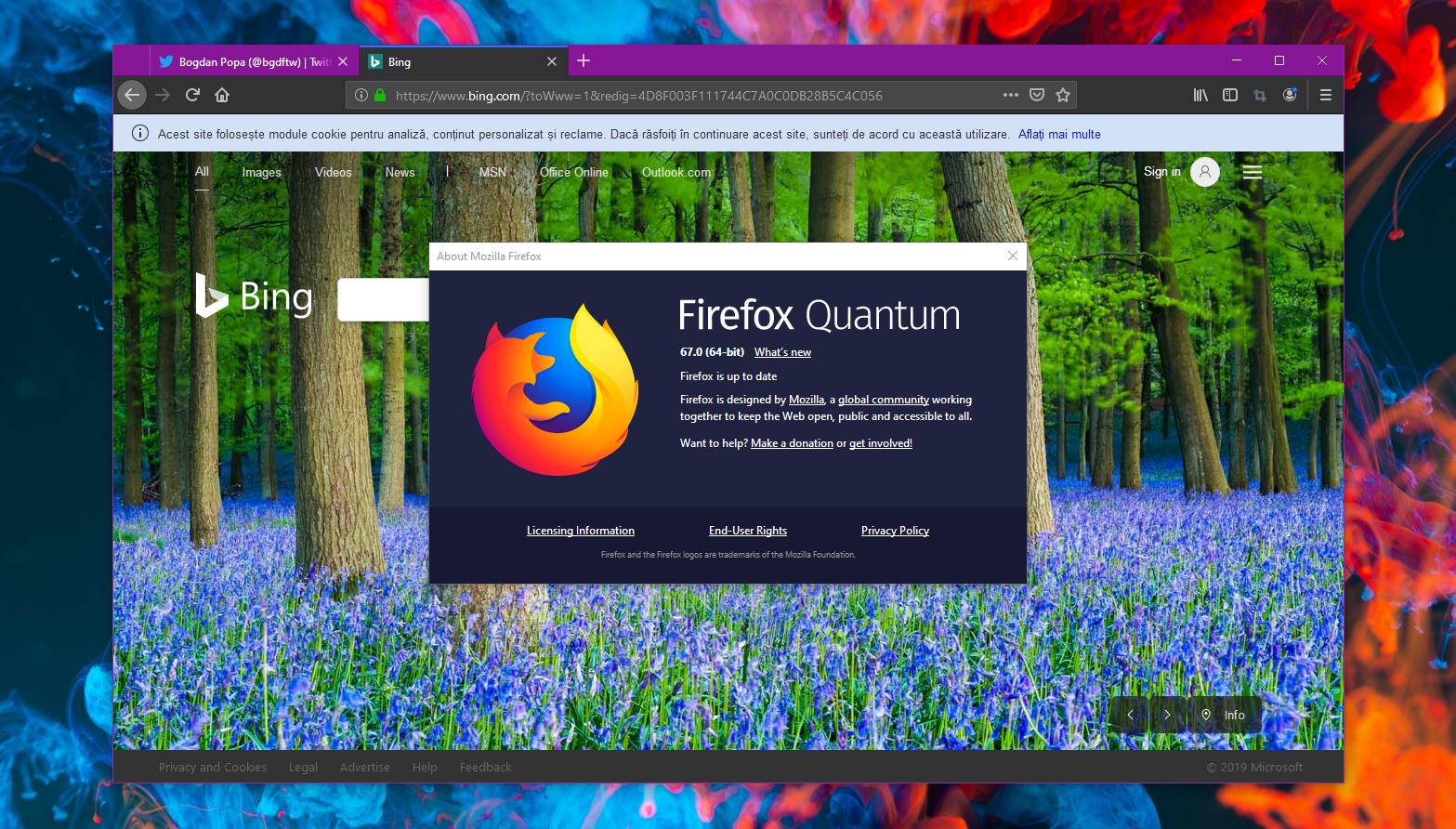

- VERSIONS OF FIREFOX FOR MAC HOW TO
- VERSIONS OF FIREFOX FOR MAC MAC OS X
- VERSIONS OF FIREFOX FOR MAC FULL
- VERSIONS OF FIREFOX FOR MAC CODE
VERSIONS OF FIREFOX FOR MAC MAC OS X
In 2016, Apple took the plunge to unify the branding of its operating systems by rebranding Mac OS X to macOS, which sits nicely alongside iOS, tvOS and watchOS, and paved the way for macOS 11, the successor to Mac OS X, which arrived twenty years after the first beta of Mac OS X. In 2015, Apple decided to change the theme of internal code-names from wines to types of apple. Mac OS X & macOS namesĪs you can see from the list above, with the exception of the first OS X beta, all versions of the Mac operating system from 2001 to 2012 were all named after big cats, from Cheetah to Panther to Mountain Lion.īut while the public-facing builds were named after big cats, internally, they were named after wines (aside from OS X 10.6 and macOS 10.13, both of which had no codename).Įven after Apple switched public-facing code-names to places in California back in 2013, it carried on naming them after wines internally until 2014.
VERSIONS OF FIREFOX FOR MAC FULL
We have a full list of which Macs run which versions of Mac OS X and macOS here.
VERSIONS OF FIREFOX FOR MAC CODE
You'll find a complete list of OS X version code names, along with internal code names (if available): OS X 10 beta: Kodiak - 13 September 2000 OS X 10.0: Cheetah - 24 March 2001 OS X 10.1: Puma - 25 September 2001 OS X 10.2: Jaguar - 24 August 2002 OS X 10.3 Panther (Pinot) - 24 October 2003 OS X 10.4 Tiger (Merlot) - 29 April 2005 OS X 10.5 Leopard (Chablis) - 26 October 2007 OS X 10.6 Snow Leopard - 28 August 2009 OS X 10.7 Lion (Barolo) - 20 July 2011 OS X 10.8 Mountain Lion (Zinfandel) - 25 July 2012 OS X 10.9 Mavericks (Cabernet) - 22 October 2013 OS X 10.10: Yosemite (Syrah) - 16 October 2014 OS X 10.11: El Capitan (Gala) - 30 September 2015 macOS 10.12: Sierra (Fuji) - 20 September 2016 macOS 10.13: High Sierra (Lobo) - 25 September 2017 macOS 10.14: Mojave (Liberty) - 24 September 2018 macOS 10.15: Catalina (Jazz) - 7 October 2019 macOS 11: Big Sur - 12 November 2020 macOS 12: Monterey - 25 October 2021 Here's an overview of every version of macOS and Mac OS X Apple has released. If you want to know the names Apple assigned to Mac OS X over the years, and the codenames that were used internally, read on. In this article we will run though the long history of Mac OS X, or macOS as it is now known.įor an overview of the features of the various versions of the Mac operating system, showing how it has developed over time, take a look at our video above. We've seen tight integration with iOS devices, the incorporation of the cloud, and the arrival of excellent and helpful features including integrated Time Machine back ups, Quick Look - which lets you see a preview of a document without opening the application, and innovations like Expose and Spaces and Desktop Stacks to help you work efficiently.

From the problems with the first edition (it was slow and didn't run important apps like Microsoft Word) Mac OS X has evolved through various iterations and various designs to what we know today. There's been a lot of change over those two decades: good and bad. Mac OS X first launched more than 20 years ago on 24 March 2001.
VERSIONS OF FIREFOX FOR MAC HOW TO
For more information read: Everything you need to know about macOS Monterey.Īnd if you are looking for help installing Monterey read: How to update macOS: Update to Monterey and Fixes for Macs that won't update macOS. Monterey arrived on Monday 25 October 2021. If you are wondering what the latest version of macOS is it's Monterey! Also known as macOS 12.

We'll also show you how you can check which version of macOS you are running and find out what the latest version of macOS is. Wondering what the name of the latest macOS version is? Curious about the versions of Mac OS X that came before? Here we'll fill you in on the names of the different versions of the Mac operating system in order: from the newest macOS to the first version of Mac OS X and the codenames that Apple used for them.


 0 kommentar(er)
0 kommentar(er)
